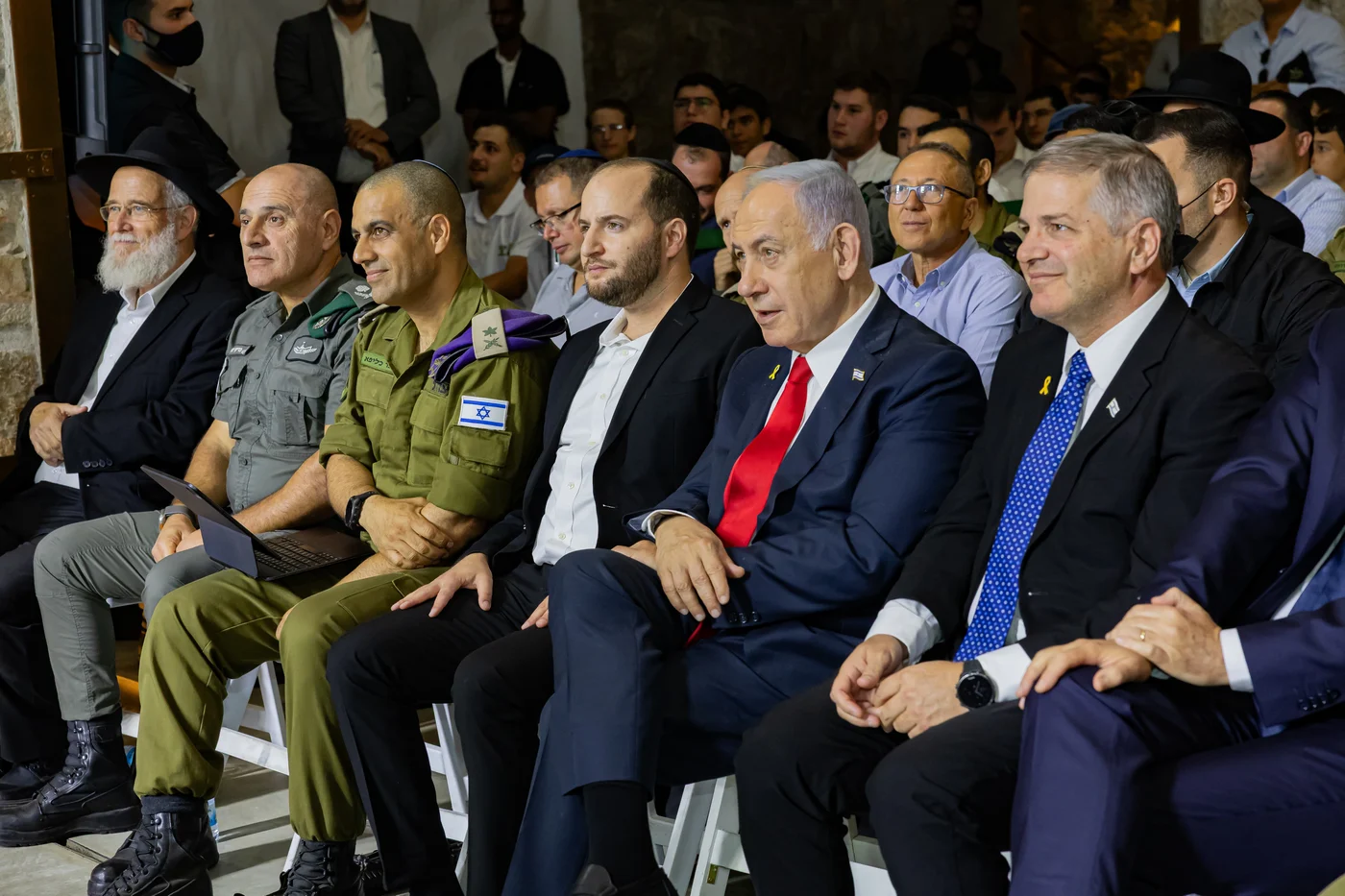Prime Minister Benjamin Netanyahu Honors Netzah Yehuda at Historic Opening of the Haredi Mechinot
“I take off my hat before him. This is the true strength of Israel, the union of Torah learning and military courage.”
Voices of Leadership and Unity
The Prime Minister’s message was echoed by leaders across the spectrum:
* MK Boaz Bismuth, Chairman of the Foreign Affairs & Security Committee:
“Serving in the IDF is both an obligation and a privilege, just like in halacha. The very presence of Haredi soldiers in uniform is a Kiddush Hashem.”
* Minister of Education Yoav Kisch, addressing the students:
“Amidst debates over the draft law, you are living proof that service can be carried out with full respect for Torah and tradition. We will continue to stand with you.”
* Brigadier General Dado Bar Kalifa, Head of IDF Manpower:
“From these hundreds of students will grow thousands. You will lead the way, showing how to remain steadfast in Torah while serving in the army.”
* Yossi Levi, CEO of the Netzah Yehuda Association:
“This is a great Kiddush Hashem. Twenty-five years ago we began this journey together, and today, with more than 450 students in our mechinot and yeshivot, we are witnessing a true Jewish educational revolution.”
A Shared Achievement
This gathering was far more than a ceremony — it was a declaration. It reflected the strength of the Netzah Yehuda path: young men firmly anchored in Torah, preparing to serve Am Yisrael with courage, faith, and responsibility.
Dear friends and supporters, this achievement is yours as well. Every student who begins his journey with Netzah Yehuda is living proof of your partnership. Together, we are shaping the future of Am Yisrael, a future of Torah, courage, and unity.

